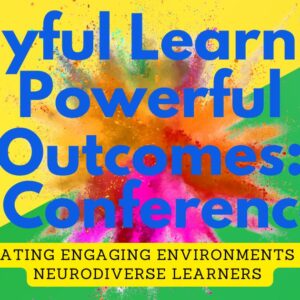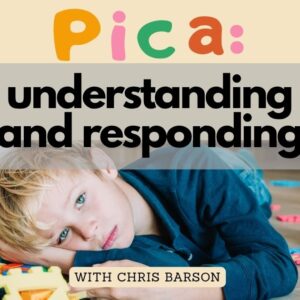
Rapport-based communication and intensive interaction
27 February 2026: 9 am – 12 noon
Rapport and relationships are the foundation of high-quality care and education. This course introduces Rapport-Based Communication, a simple and inclusive approach that helps practitioners connect meaningfully with the people they support – whether in early years, schools, or adult services.
Led by Matt Laurie, the course blends theory, practical strategies, and video reflection. It explores how Rapport-Based Communication builds on approaches like Intensive Interaction, utilising a set of clear tools – the 3C’s – to help staff respond in socially engaging, respectful, and inclusive ways.
Throughout the course, you’ll reflect on your own practice, learn how to notice and respond to social cues, and develop your skills in building rapport that supports communication, wellbeing and learning.
Session 1: The Purpose of Rapport-Based Communication
This session introduces the core ideas behind Rapport-Based Communication. Matt explores what rapport really is, why it matters in SEN and care settings, and how it already exists in the work you do. He also discusses how this approach connects with Intensive Interaction.
You’ll explore:
what rapport is, and what it looks like in practice
the research that supports rapport-based approaches
why rapport underpins meaningful learning and care
how rapport fits into your current practice
links between Rapport-Based Communication and Intensive Interaction
Session 2: Putting Rapport into Practice – The 3C’s
Through practical examples and social learning games, Matt introduces the 3C’s, a simple framework for recognising and building rapport. You’ll explore how to notice and respond to communication offers, and how social preferences (your own and others’) can shape the way rapport is built or blocked.
You’ll explore:
how to recognise and respond to social ‘offers’
what the 3C’s are—and how they support inclusive communication
why the difference between an ‘offer’ and a ‘demand’ matters
how unconditional positive regard supports trust and rapport
how to navigate social preferences that may hinder connection
Session 3: The 3C’s in Action
This session takes a practical turn, with video examples of real interactions in SEN and care settings. You’ll revisit previous examples using your new understanding of the 3Cs, spotting how rapport is built moment by moment. Matt’s commentary explains how practitioners utilise the 3C’s in various contexts and for different needs.
You’ll explore:
how the 3C’s appear in real-life interactions with children and adults
the role of observation and reflection in improving practice
how to apply the 3C’s across early years, school and adult contexts
tips for strengthening engagement and connection
how responsive practice supports inclusive communication
Session 4: Embedding and Recording Rapport-Based Communication
In this final session, Matt introduces a simple method for recording rapport-based interactions. You’ll reflect on what helps—and what gets in the way—when trying to embed these approaches in everyday practice. A group discussion explores practical challenges and solutions, followed by a Q&A session.
You’ll cover:
how to record and track rapport-based interactions
enabling factors that support meaningful communication
common barriers and how to overcome them
reflecting on your environment, mindset and team culture
planning your next steps for embedding the 3C’s in your setting
9 am Admission and virtual tea/coffee to start the session!
9.05 am Welcome and a warm-up
9.10 am Session 1: The purpose of Rapport-Based Communication
10.00 am Session 2: The Practice of Rapport-Based Communication
10.45 am Coffee
11.00 am Session 3: The 3C’s in Context
11.30 am Session 4: Embedding and Recording Rapport-Based Communication
11.45 am Q & A
12 noon Plenary, thank you and goodbye!
This course will be appropriate for classroom practitioners from special schools and colleges, mainstream settings with specialist SEN provision and early years settings, and working with pupils with severe/complex learning needs and autism, or both.
Matt Laurie is a highly experienced Music Specialist, Rapport-Based Communication and Intensive Interaction Consultant, Community Artist, Social Learning Leader and INSET trainer. Since 2002, Matt has enabled and supported changes in practice around social inclusion in many services around the UK and internationally including residential autism services, care homes, SEN schools, acute mental health units, dementia services, hospitals, charities and community groups.
As an experienced social learning leader, all of Matt’s training sessions are socially engaged, enjoyable, practical and thought-provoking. All sessions are designed to develop sustainable communities of practice, an approach to embedding practice developed in the 1980’s by Etienne Wenger with whom Matt has trained intensively.
From his years of experience developing the provision of Intensive Interaction and Music on a long term basis in multiple settings, Matt developed the more universal approaches of Rapport-Based Communication and Rapport-Based Musical Interaction. These approaches are now being implemented in many care and education services around the UK and internationally and Matt has published articles for PMLD Link (2021), ‘The Practical Handbook of Living with Dementia (2022), and as part of a collborative approach to supporting people with autism ‘Rhythmic Relating’ (Frontiers In Psychology 2024).
For Hirstwood training, Matt is offering the following courses:
Rapport-Based Communication and Intensive Interaction
Rapport-Based Musical Interaction
Developing More Engaging Activities
Supporting Staff and Student Wellbeing in times of distress and conflict
In addition to his work in the context of sensory practice for people with additional needs, Matt also runs a local community music group, teaches peripatetic music lessons at a local secondary school, and practices and teaches qigong and zen meditation at his local classes.
Each place costs £149 plus VAT.
You can pay by credit card for this booking or request an invoice on the booking form.
The recording of this event will be in your account at online.hirstwood.com. You will access this using the email address on the booking form and your password (instructions for creating your password are in the joining information).
Here you will find:
a digital recording of the event
a transcript of the Zoom chat
These will be available for 10 days after the event.
NEW for 2025!
We will suggest practical reflective practice for this event to support you in implementing your key takeaways from this session in the classroom.
We’ll also offer a toolkit of additional resources to help, which may include further documentation, videos or links to valuable resources/websites.
Please join our Facebook Group, Sensory Support Spaghetti, to connect with us and other like-minded professionals – for everything sensory!
NEW FOR 2025!






